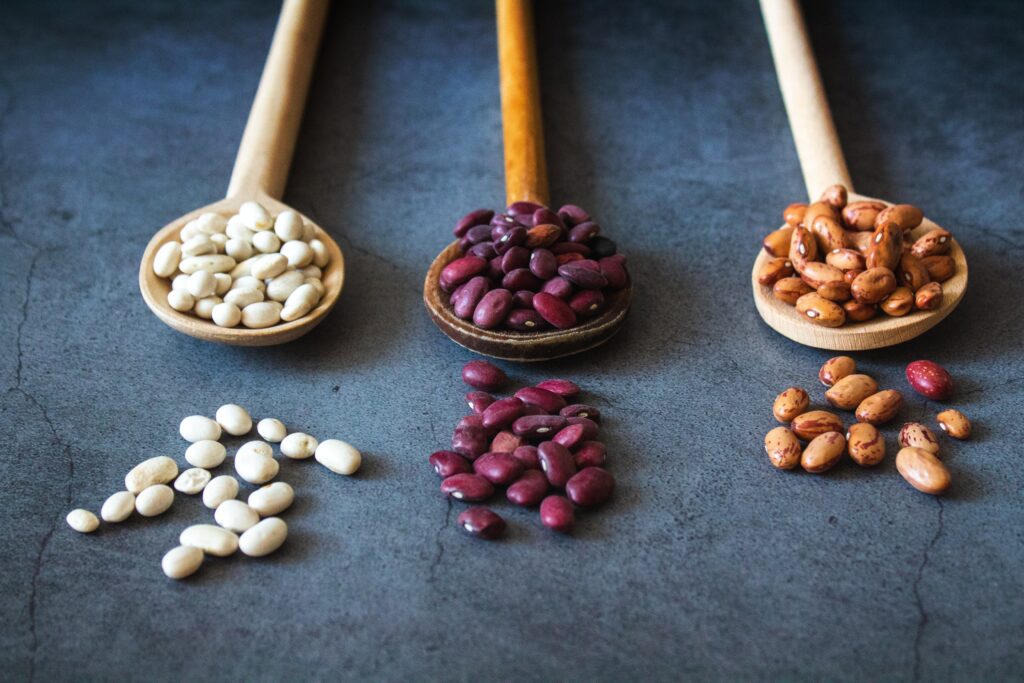Mulberry fruits are the sweet and juicy berries produced by the Morus genus mulberry trees. They are typically small and elongated, resembling raspberries or blackberries. However, their exact size and shape can vary depending on the specific variety.
When fully ripe, mulberry fruits have a unique flavour that is often described as a combination of sweet berries with a hint of tartness. They are sweet, tart, and juicy, and come in a range of colours, including red, black, and white depending on the species of the tree.
Mulberry benefits in improving your overall health due to being packed with nutrients, including vitamin C, vitamin K, potassium, and dietary fibre, and is also rich in antioxidants, such as anthocyanins, which are beneficial for overall health. Mulberry fruits can be eaten fresh, dried, or used in various culinary applications. They are commonly used to make jams, jellies, pies, tarts, and wines.
They are a delicious and versatile ingredient offering nutritional benefits and culinary possibilities.
Table of Contents
Nutritional Value of Mulberries
Delicious but also offers a range of health mulberry benefits due to their nutritional content. Mulberries are nutrient-dense fruits that provide a range of vitamins, minerals, fibre, and antioxidants, making them a valuable addition to a healthy diet. Here’s a breakdown of the nutritional value of mulberries per 100 grams of fresh fruit:
- Calorie: 43 kcal
- Protein: 1.45 g
- Dietary fibre: 1.7 g
- Water: 88%
- Sugar: 8.1 g
Vitamins:
- Vitamin K: 7.8 µg
- Vitamin A: 25 IU
- Vitamin C: 36.4 mg
Minerals:
- Calcium: 39 mg
- Iron: 1.85 mg
- Potassium: 194 mg
- Magnesium: 18 mg
- Phosphorus: 38 mg
- Sodium: 10 mg
The Incredible Health Mulberry Benefits: What You Need to Know
Incorporating mulberries into your diet as part of a balanced may offer numerous health benefits and contribute to overall well-being. Mulberries offer several health benefits due to their rich nutritional profile and bioactive compounds. Here are some of the potential mulberry benefits you should know:
Rich in Antioxidants:

Mulberries are indeed rich in antioxidants, which are compounds that help neutralize harmful free radicals in the body. Mulberries owe their deep colour to anthocyanins, a type of flavonoid antioxidant. Anthocyanins have been associated with various mulberry benefits, including reducing inflammation, improving heart health, and supporting immune function.
Resveratrol is a polyphenol antioxidant found in mulberries, as well as in grapes and red wine. It may protect against cardiovascular disease, lower blood pressure, improve insulin sensitivity, and exhibit anti-inflammatory and anti-cancer properties.
Mulberries contain various flavonoids, including quercetin, rutin, and kaempferol. Flavonoids have antioxidant, anti-inflammatory, and anti-cancer properties. They may also help protect against cardiovascular disease, promote healthy ageing, and support overall well-being.
Mulberries are a good source of vitamin C, a powerful antioxidant that plays a vital role in immune function, collagen synthesis, wound healing, and protecting cells from oxidative damage. Adequate vitamin C may help reduce the risk of chronic diseases and promote overall health.
Beta-carotene is a precursor to vitamin A and a potent antioxidant found in mulberries. Mulberry benefits protect the body from oxidative stress, support eye health, boost immune function, and may reduce the risk of certain cancers and age-related diseases.
Support Heart Health:

Certain compounds in mulberries may help lower levels of LDL cholesterol (often referred to as “bad” cholesterol) while increasing levels of HDL cholesterol (known as “good” cholesterol). This balance is important for reducing the risk of heart disease, that’s why eating mulberry benefits in improving heart health.
Potassium, a mineral found in mulberries, plays a role in regulating blood pressure. Adequate potassium intake can help relax blood vessels and lower blood pressure, reducing the risk of hypertension and related heart problems.
The antioxidants and other bioactive compounds in mulberry benefits improve the function of blood vessels, including their ability to dilate and maintain healthy blood flow. This can contribute to overall cardiovascular health by reducing the risk of conditions like atherosclerosis and hypertension.
Boost Immune Function:

Mulberries are a good source of vitamin C, which is known to play a crucial role in supporting the immune system. Vitamin C enhances the function of various immune cells, including white blood cells and natural killer cells, which help protect the body against infections and pathogens.
Mulberries contain a variety of antioxidants, including anthocyanins, flavonoids, and resveratrol. These antioxidants help neutralize harmful free radicals in the body, reducing oxidative stress and inflammation, which can weaken the immune system over time.
Antioxidants in mulberry benefits and enhance the activity of immune cells, such as macrophages and T cells, which play key roles in identifying and eliminating pathogens from the body.
Chronic inflammation can impair immune function and make the body more susceptible to infections and diseases. The anti-inflammatory compounds found in mulberry benefits reduce inflammation and support a healthy immune response.
Promote Digestive Health:

Mulberries are an excellent source of dietary fibre, which is essential for maintaining a healthy digestive system. Fibre adds bulk to stool, promotes regular bowel movements, and helps prevent constipation. Adequate fibre intake can also support the growth of beneficial bacteria in the gut, promoting overall digestive health.
The combination of fibre and water in mulberry benefits softens stool and promotes bowel regularity. Mulberry benefits alleviate constipation and prevent digestive discomfort.
The fibre in mulberries acts as a prebiotic, which means it provides nourishment for beneficial bacteria in the gut. These bacteria ferment fibre in the colon, producing short-chain fatty acids that help maintain a healthy intestinal environment, support the integrity of the gut lining, and enhance nutrient absorption.
A diverse and balanced gut microbiome is essential for optimal digestion and overall health. Consuming foods rich in fibre, antioxidants, and other nutrients, such as mulberries, can help promote a healthy gut microbiome by providing the necessary nutrients for beneficial bacteria to thrive.
Support Blood Sugar Control:

Mulberries have a relatively low glycemic index (GI), which means they cause a gradual and steady increase in blood sugar levels compared to high-GI foods. Foods with a low GI are less likely to cause spikes and crashes in blood sugar levels, making them suitable for maintaining stable blood glucose levels.
Mulberries are rich in dietary fibre, which can help slow down the absorption of sugars in the bloodstream. Fibre adds bulk to the diet, slows the digestion and absorption of carbohydrates, and promotes a gradual rise in blood sugar levels after meals. Mulberry benefits prevent rapid spikes in blood glucose levels.
Mulberry contains polyphenols and flavonoids, including anthocyanins and resveratrol, which have the potential to improve insulin sensitivity and regulate blood sugar levels. These compounds may enhance the body’s ability to utilize insulin effectively, reducing the risk of insulin resistance and type 2 diabetes.
Reduce Cancer Risk:

Mulberries are rich in antioxidants such as anthocyanins, flavonoids, and resveratrol. These antioxidants help neutralize free radicals, which are unstable molecules that can damage cells and DNA, leading to cancer development. By reducing oxidative stress and DNA damage, antioxidants in mulberries may help lower the risk of cancer.
Apoptosis, or programmed cell death, is a natural process that eliminates damaged or abnormal cells, including cancerous cells. Certain compounds in mulberry benefits to induce apoptosis in cancer cells, thereby inhibiting their growth and spread.
Mulberry extracts may inhibit the growth and proliferation of cancer cells in various types of cancer, including breast, colon, liver, and leukaemia. These effects may be attributed to the presence of bioactive compounds with anti-cancer properties.
Mulberries may modulate the immune system and enhance its ability to recognize and destroy cancer cells. By boosting immune surveillance and response, mulberry benefits prevent the progression of cancer.
Lower Cholesterol:

Mulberries are rich in dietary fibre, including soluble fibre. Soluble fibre has been shown to help lower LDL (bad) cholesterol levels by binding to cholesterol particles in the digestive tract and promoting their excretion from the body. By reducing the absorption of cholesterol from the diet, soluble fibre helps maintain healthy cholesterol levels.
Mulberries may inhibit the absorption of cholesterol from the intestines into the bloodstream. By interfering with cholesterol absorption, mulberry benefits reduce LDL cholesterol levels and improve overall cholesterol profile.
Mulberries contain antioxidants such as anthocyanins, flavonoids, and resveratrol, which have been shown to have cholesterol-lowering effects. Antioxidants help prevent the oxidation of LDL cholesterol particles, which can lead to the formation of plaque in the arteries. By reducing LDL oxidation, antioxidants in mulberry benefits protect against atherosclerosis and lower the risk of cardiovascular disease.
Good for Bone Health:

Mulberry contains a certain amount of calcium. Calcium is essential for maintaining strong bones and teeth. Consuming calcium-rich foods like mulberries can contribute to overall bone health and help prevent osteoporosis and other bone-related conditions.
Mulberries are a good source of vitamin K, particularly vitamin K1 (phylloquinone). Vitamin K plays a critical role in bone metabolism by supporting the mineralization of bone tissue and helping regulate calcium balance in the body. Adequate intake of vitamin K is associated with a reduced risk of fractures and improved bone density.
Mulberries are a good source of potassium, an essential mineral that plays a role in bone health. Potassium helps neutralize acids in the body, which can leach calcium from bones. By maintaining a proper acid-base balance, potassium may help preserve bone density and reduce the risk of osteoporosis.
Improve Your Eye Health:

Mulberries contain beta-carotene, a precursor to vitamin A. Vitamin A is essential for maintaining healthy vision, particularly in low-light conditions. It helps form the pigments that are necessary for night vision and supports the health of the retina.
Mulberries are rich in antioxidants, including vitamin C, flavonoids, and anthocyanins. These antioxidants help protect the eyes from oxidative stress caused by free radicals, which can contribute to age-related macular degeneration (AMD), cataracts, and other eye diseases.
Mulberries contain lutein and zeaxanthin, two carotenoid antioxidants that accumulate in the retina and lens of the eye. Lutein and zeaxanthin act as natural filters, protecting the eyes from harmful blue light and ultraviolet radiation. They also help maintain visual acuity and reduce the risk of AMD and cataracts.
Enhance Skin Health:

Mulberries contain various antioxidants, including vitamin C, flavonoids, and anthocyanins. These antioxidants help neutralize free radicals, which are unstable molecules that can damage skin cells and lead to premature ageing, wrinkles, and other skin problems. By reducing oxidative stress, antioxidants in mulberry benefits maintain youthful and radiant skin.
Vitamin C, found abundantly in mulberries, plays a crucial role in collagen synthesis. Collagen is a protein that provides structure and elasticity to the skin, helping it stay firm and supple. Adequate intake of vitamin C can support collagen production, promoting smoother and more resilient skin. Mulberries contain water and natural sugars that can help hydrate the skin from within.
The vitamin C content in mulberries may also contribute to skin brightening and complexion improvement. Vitamin C helps inhibit the production of melanin, the pigment responsible for dark spots and uneven skin tone. Regular consumption of mulberries or topical application of mulberry extracts may help lighten dark spots and promote a more even complexion.
Final Words
Mulberry (Shahtoot) are sweet and juicy berries with a hint of tartness. Mulberry contains essential nutrients including vitamins minerals, and dietary fibre. But, also high in water which is beneficial for overall health.
Mulberry fruits can be eaten fresh, dried, or used in various to make jams, jellies, pies, tarts, and wines. Mulberry benefits due to its nutrient content and bioactive compounds. Eating mulberry can boost immunity, improve heart and eye health, and have antioxidant effects which are good for overall health and well-being.
A fitness blogger shares health and fitness tips that could help achieve your goals. A fitness enthusiast is addicted to staying fit and healthy.












